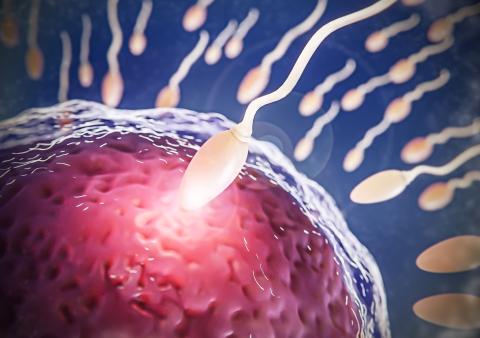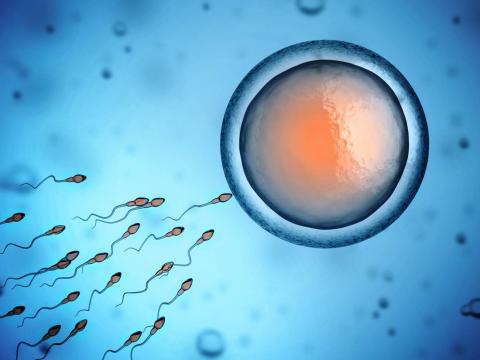Reactions: 20-year study of the psychological well-being of children born through third-party assisted reproduction
Two decades of research has found no differences in psychological well-being and the quality of family relationships between children born through assisted reproduction with third-party intervention (gamete donation or surrogacy) and those born naturally. The results, published in Developmental Psychology, suggest that it is better to talk to them early, at preschool age, about their biological origins.

Adobe Stock
bienestar niños reproducción asistida - Rocío Núñez Calonge
Rocío Núñez Calonge
Scientific Director of the UR International Group and Coordinator of the Ethics Group of the Spanish Fertility Society
This study, conducted in the UK by researcher Susan Golombok and her team, aimed to establish whether children born through assisted reproduction involving gamete donation experience psychological problems or relationship difficulties with their mothers in early adulthood. It also examined the impact of disclosure of their biological origins and the quality of the mother-child relationship from the age of three. The study included 65 assisted reproduction families when the children reached the age of 20, including 22 uterine surrogacy, 17 egg donation and 26 sperm donation families, compared to 52 non-assisted reproduction families.
The study was conducted in a comprehensive manner, with powerful psychological tools and an appropriate methodology, although its main weakness, as the authors themselves acknowledge, is the low number of cases, especially the number of families who used egg donation.
The results showed that there were no differences between families formed by egg donation, sperm donation, surrogacy and non-assisted reproduction in maternal anxiety or depression, nor in the quality of the mothers' relationships with their partners. Nor were any differences identified in parenting, mothers' acceptance of their adult children, the quality of family relationships or the openness of family communication.
As for young adults, no differences were found in their perceptions of maternal acceptance, nor in the quality of family relationships, according to family type. With respect to psychological well-being, no differences were identified between family types in psychological adjustment, as assessed by the Strengths and Difficulties Questionnaire, completed separately by mothers and young adults, or by a child psychiatrist's ratings of mothers' interview transcripts. Overall, young adults showed high levels of psychological adjustment comparable to those of the general population for 17-23 year olds.
However, within gamete donation families, egg donation mothers had less positive family relationships than sperm donation mothers in terms of family functioning and maternal acceptance of their adolescent children, suggesting to the authors that the absence of a genetic connection between mothers and children presented a challenge for the mother. However, the study has not taken into account a bias that the authors have already commented on in principle, which is that in this group the age of the mother is older than in the other groups, which may have influenced this relationship difficulty, rather than the genetic link.
It is also important to point out that, before resorting to gamete donation, a prior psychological assessment of the parents is necessary to avoid subsequent rejection after the birth of the child and even during pregnancy, which occurs more frequently in women who use egg donation. The study did not mention that these patients had made such an assessment.
The study also found worse family communication in young people conceived by sperm donation than those conceived by egg donation. Although the sample sizes for this comparison were again small, this finding, according to the authors, is in line with parents' greater secrecy about sperm donation than about egg donation, which is sometimes due to fathers' greater reluctance than mothers to disclose to their children that they are not their genetic offspring, and their greater opposition to talking about it once they have disclosed it. This is in line with the study's latest findings that adults who learned of their biological origins before the age of seven had less negative relationships with their mothers, and their mothers showed lower levels of anxiety and depression. These findings are consistent with those of other studies showing that disclosure of origin to children born through assisted reproduction should be made at an early age.
Associations between parenting and child psychological adjustment did not differ between assisted and non-assisted reproductive families from age three to age 20.
Since the study did not, of course, include young people whose parenting was not disclosed, it is not possible to know whether there is any difference between them and those whose parenting was disclosed.
In conclusion, the findings suggest that the absence of a biological connection between children and their parents in assisted reproductive families does not interfere with the development of positive mother-child relationships or psychological adjustment in adulthood.
bienestar niños reproducción asistida - Rita Vassena
Rita Vassena
Medical Director of Fertility at CooperSurgical
The study is of good quality and represents the seventh and final stage of a twenty-year longitudinal study of dozens of families who have had children through assisted reproduction with non-self gametes, whether donated sperm, donated eggs or surrogacy.
All mothers and, where ethically possible, also the children, have been followed for two decades and interviewed periodically to identify their level of psychological adjustment on a personal level and the relationship between mothers and children. The results are very encouraging, as these children, now young adults, are in a very positive situation in relation to themselves, their mothers and their families.
It was feared, and is sometimes still feared, that children born through assisted reproduction techniques who do not have a genetic link to their parents may have psychological disorders similar to those known in adopted children. This study, and the others in the same series, tell us that this fear has no basis in the real data and that, despite sharing with adopted children the lack of genetic connection with the parents, their adjustment is positive and similar to that of children from families who conceive without resorting to assisted reproduction treatments.
It is a study that provides reassurance for families [resorting to assisted reproduction] and that may help in the decision making process for couples facing the specific doubts and concerns involved in resorting to assisted reproduction treatment with gametes from donation.
bienestar niños reproducción asistida - Antonio Urries
Antonio Urries
Director of the Assisted Reproduction Unit at the Quirónsalud Hospital in Zaragoza and member of the Quirónsalud Scientific Committee
All of us who work in the field of human assisted reproduction are aware of the doubts that arise in families when they have to resort to gamete donation, both eggs and sperm, as a last option to achieve a pregnancy.
The genetic link that, theoretically, is lost when they have to resort to a donation is usually a major point of doubt and concern in these families who interpret that they are giving up an important part of their legacy that may have repercussions on the relationship of these fathers and mothers with their offspring.
That is why studies as powerful and well-designed as this one are important to disseminate, as they show that resorting to these techniques does not generate any type of alteration in the relationship, and even show that the sooner it is communicated, the more positive it will be for the family.
Naturally, we are starting from the assumption that the child will be informed of this situation, so it is impossible to establish a comparison with the opposite situation in which these descendants are not informed of their origin by means of donated gametes.
It could be considered equivalent to the control group, but for this reason it is not possible to establish comparisons.
Finally, it should be pointed out that since this is a study from twenty years ago, we can assume that the evaluation is even more positive today, given that these techniques are now more socially normalised than they were twenty years ago.
This study can send a message of normality to those families who have to resort to gamete donation techniques as their only option, giving them extra peace of mind in an already complicated and stressful process.
Golombok, S. et al.
- Research article
- Peer reviewed
- Observational study
- People



